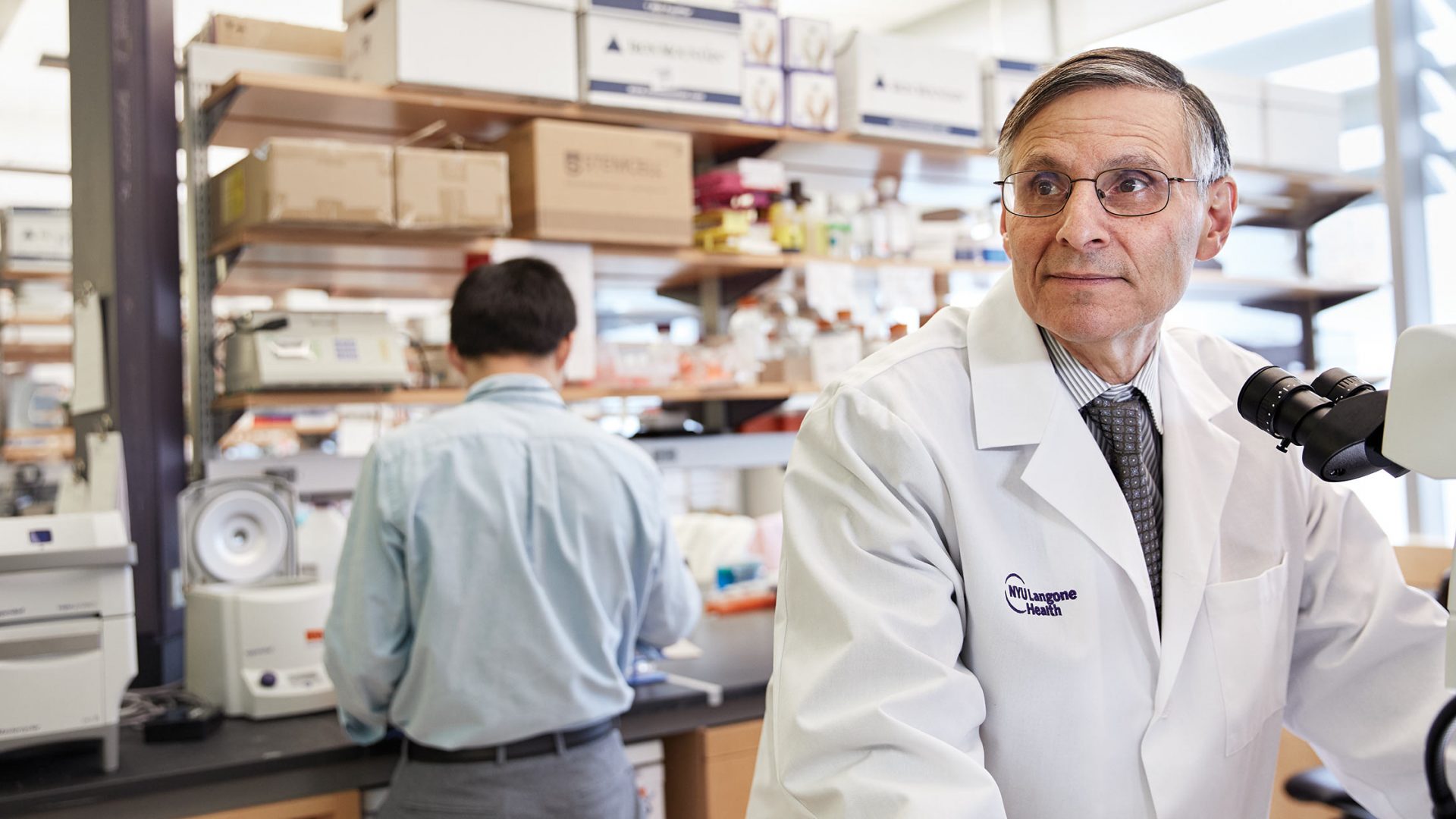Benjamin G. Neel, MD, PhD, is an internationally renowned expert in cell signaling and cancer biology and the Laura and Isaac Perlmutter Director of NYU Langone Health’s Perlmutter Cancer Center. Here, he discusses the HapImmune platform, which, in broadest terms, is a means to increase the antigenicity of any cancer-specific protein that can be targeted with a covalent inhibitor and presented on human leukocyte antigen (HLA) molecules.
Dr. Neel co-developed the technology with Shohei Koide, PhD, and it is now being commercialized by Aethon Therapeutics in partnership with NYU Langone.
Building on Decades of Research
Physician Focus: Dr. Neel, you’ve been involved in the advancement of translational programs in immunotherapy, cancer genetics, and targeted therapies for several decades. How have you seen it evolve?
Dr. Neel: Forty years ago, we did not know any single gene mutation causes cancer, nor did we understand the molecular basis for cancer progression and drug resistance.
Now we’ve identified between 500 and 1,000 gene mutations that, in different combinations, can lead to cancer. As a result, we’ve developed a multitude of treatments, such as targeted therapies, which include small-molecule signal transduction inhibitors and antibodies against receptor tyrosine kinases, as well as small molecules that specifically target mutant oncogenes or components of their downstream signal transduction cascades. We also now have immune therapies, such as immune checkpoint inhibitors, which reactivate the patient’s own immune system against their tumors.
Creating Targetable Neoantigens by Design
Physician Focus: How does the HapImmune platform represent a next step in precision cancer treatment?
Dr. Neel: As I mentioned, some intracellular oncoproteins can be inhibited with targeted therapy, but responses are not durable. On the other hand, immune therapies can be curative, but most oncogene-driven tumors are unresponsive to these treatments. This new platform, HapImmune, creates targetable neoantigens by design, unifying targeted and immune therapy treatment approaches.
“[T]his new platform is incredibly exciting and exemplifies where the field will be heading. We’re moving quickly to advance programs focused on combinations with KRAS and EGFR inhibitors, and in the future we plan to develop other drug–antibody combinations.”
Benjamin G. Neel, MD, PhD
We know mutant oncoproteins are “neoantigens,” that is they are, by definition, different from their normal counterpart. In principle, the mutant proteins should appear as foreign to the immune system. Fragments of some mutant oncoproteins can be presented by the major histocompatibility complex (MHC), which should trigger such an immune response. However, recognizing minimal differences between oncoproteins and their normal counterparts is difficult. Equipped with this knowledge, we developed a platform technology that exploits hapten–peptide conjugates generated by covalent inhibitors to create distinct neoantigens that selectively mark cancer cells.
Physician Focus: Can you explain how the platform works?
Dr. Neel: The antibodies produced via the HapImmune platform are designed to activate T cells that will specifically eliminate tumor cells.
First, we use a technology called phage display to identify antibody fragments that can bind the drug–peptide complex when it is bound to specific MHC molecules. Dr. Koide and his group are experts in this technology. After multiple rounds of phage display, we identified very high-affinity “front-end” antibodies. The chosen antibodies can then be reformatted into customized, bispecific T cell engagers, with one recognition arm directed toward the drug–peptide bound to MHC and the other toward T cell surface proteins, ultimately recruiting more T cells to attack the tumor cells.
The same “front end” could also be linked to “back ends” that bring in NK cells or radioactive molecules—or even be developed into CAR T or CAR NK cells.
Next Steps of Development
Physician Focus: In January 2023, you announced the launch of Aethon Therapeutics, a commercial venture designed to further develop the HapImmune platform. What lies ahead?
Dr. Neel: We are still in the early days of development, but this new platform is incredibly exciting and exemplifies where the field will be heading. We’re moving quickly to advance programs focused on combinations with KRAS and EGFR inhibitors, and in the future we plan to develop other drug–antibody combinations.
Disclosures
NYU Langone Health and its Technology Opportunities and Ventures arm has exclusively licensed to Aethon pending patent applications and expertise covering the HapImmune platform. NYU Langone is the owner of the technology exclusively licensed to Aethon and has equity and other financial interests in Aethon. Dr. Koide and Dr. Neel also have equity in Aethon, and Aethon is also sponsoring research conducted by Dr. Koide and Dr. Neel at NYU Langone. These interests are being disclosed and managed in accordance with NYU Langone policies.






